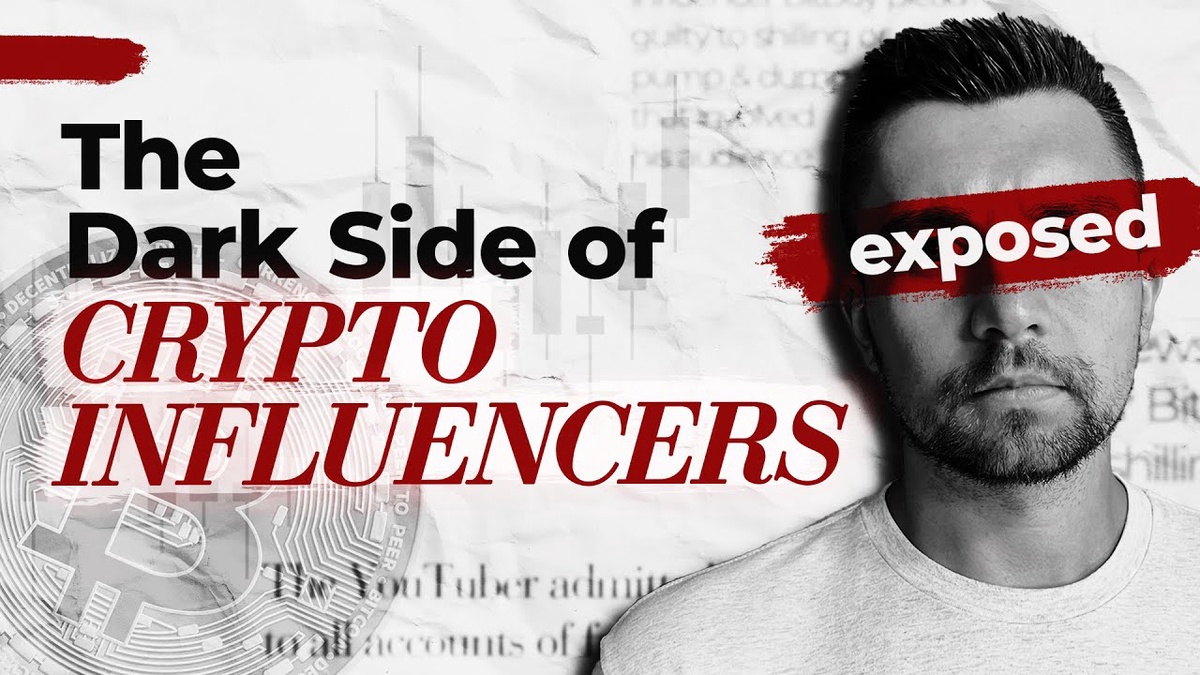Influencers have taken on the role of self-appointed ambassadors for digital assets in the world of cryptocurrencies, where decentralized money rules supreme. They have enormous social media followings and the ability to influence markets with a single tweet. But what occurs when the distinction between persuasion and manipulation is fuzzy? The community has not yet fully addressed the ethical issues raised by the less well-known and darker aspects of crypto influencers.
The Personality Cult
The appeal of crypto influencers is obvious to the uninitiated. Their bold statements can give the unstable crypto environment the appearance of being navigable—even lucrative—and they appear to have an extraordinary talent for trend predicting. This development of a "cult of personality" attracts adherents into a web where influence turns into a more valuable currency than Bitcoin. However, the attractiveness of social media frequently hides a lack of knowledge, with influencers appearing as oracles of financial knowledge without the training or qualifications to support their claims.
Pump and Dump: Selling Influence
The "pump and dump" method is arguably the most obvious moral conundrum in this area. An influencer might promote a lesser-known cryptocurrency on their platform, only to sell their holdings once their fans have raised the price, leading the cryptocurrency to crash later. This not only breaches their audience's trust but also has legal ramifications. In the US, the Securities and Exchange Commission (SEC) and Commodity Futures Trading Commission (CFTC) have already started to investigate influencers for possible market manipulation.
Secret Information: A Deceptive Game
The disclosure—or withholding—of insider information is another hazy topic. Several crypto influencers have access to exclusive information because of their prominent positions. Information can result in substantial advantages, such as upcoming announcements from cryptocurrency initiatives. While having access to this knowledge may seem like a benefit of being a "industry insider," when it is turned into a commodity and sold, it defeats the purpose of a decentralized market.
Initial Coin Offerings (ICOs) have turned into a gold mine for crypto influencers, according to The Paid Apostles. Although many claim to be objective analysts, they actually receive payment for their recommendations. It is alarming how opaque these transactions are. A conflict of interest is created when an influencer receives payment in tokens from the very ICO they are advocating, but this is rarely disclosed to followers. The influencer's financial interest in the project's success may be unnoticed by inexperienced investors, who are thus duped.
Investments in a Confusing Web
Influencers frequently have a sizable portfolio of cryptocurrency assets outside of ICOs. Although this is not inherently wrong, there is a problem when these investments are not made public. While presenting their "analysis," many influencers easily forget that they are outspoken supporters of the projects in which they have financial stakes. It would be financially and morally irresponsible for followers who take this counsel at face value to suffer the consequences.
Accountability: The Link That Is Missing
The concept of responsibility is complicated by the decentralized nature of the cryptocurrency business. Traditional financial advisors are subject to regulation and have a fiduciary duty to work in their customers' best interests. Influencers in the cryptocurrency field often operate in a murkier environment without being subject to the strict regulations found in traditional financial markets.
Self-policing within the community becomes necessary in this void, but it is sadly inadequate. Although such projects have been sluggish to take off, a code of ethics embraced by influencers might go a long way toward generating credibility and confidence.
Conclusion
The effect that crypto influencers have is both astounding and alarming. While many surely make great contributions to the community, the public, and innovation, a small number of unregulated, opaque activities have a significant negative impact on the industry.
How can the crypto community uphold ethical behavior in a field where decentralization is both its greatest strength and its biggest risk as the line between influence and manipulation continues to blur?
Followers are advised to proceed with caution until the industry resolves these moral ambiguities because the glimmer of social media stardom might occasionally be the sheen of fool's gold.


No comments yet